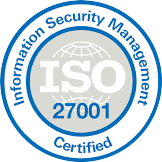Massive Okta Breach
TL;DR:
|
Okta, a giant in access and identity management in the U.S., recently faced a cyber breach that turned heads.
Unlike initial reports suggesting limited impact, the Okta breach impacted all customer support users. Okta, known for safeguarding access and identity, faced a stark reality check as the full scope of the intrusion unfolded.
That’s right, every one of the 18,000 customers, including big names like 1Password, Cloudflare, OpenAI, and T-Mobile, felt the tremors. The breach served as a wake-up call not only for Okta but also as a signal to businesses everywhere about the constant risks in digital security.
Dive deep into what occurred, the handling process, and the lessons you can learn from this cybersecurity quake.
The Breach Details
The Okta breach impacted all customer support users’ lists, and it wasn’t a minor one.
Hackers managed to access the company’s customer support system using stolen credentials. This breach allowed them to lay hands on sensitive data.
What initially seemed limited to less than 1% of Okta’s customers quickly escalated. The company later confirmed that every customer was affected. Okta breach impacted all customer support users’ email. They also accessed phone numbers, usernames, and job details for a subset of users.
Okta provides identity management services. Their systems contain keys to many other digital doors. When these systems are compromised, the ripple effect can be significant. The breach occurred over several weeks, starting in late September 2023. It was a sophisticated attack that exploited the systems and the trust placed in Okta by thousands of companies worldwide.
Even the most secure systems carry risks.
This underscores the importance of creating strong, unique passwords and the need to enable additional security measures whenever possible.
Okta’s Response
Okta took immediate action after realizing the extent of the breach.
They started by informing customers about the incident. Transparency was key in their response. They revealed the importance of the data breach and described the measures implemented to enhance their system’s security.
Okta emphasized the importance of turning on multi-factor authentication (MFA) to add another layer of protection. Using MFA significantly decreases the likelihood of someone gaining unauthorized access with stolen login credentials.
The company also reviewed its security protocols. They aimed to close any gaps that allowed the breach. This process included a detailed investigation to identify how hackers breached the system. Okta collaborated with security specialists to bolster defenses, aiming to make future breaches significantly more challenging.
For Okta, they wanted to regain their customers’ trust. They are committed to monitoring and updating their security measures continually.
This incident served as a reminder of the constant vigilance required in digital security.
Impact on Customers
Imagine the unease knowing your data could be in the wrong hands.
For some, it meant their phone numbers, job details, and usernames were out there. Customers faced increased risks of phishing attacks. Hackers might exploit the stolen information to deceive individuals into revealing more data or gaining access to protected systems. For businesses using Okta, the breach sounded an alarm.
It underlined the need to examine the security measures of partners and vendors closely.
Companies had to reassess their security measures, potentially revamping systems to prevent future breaches.
Industry Reactions and Expert Opinions
The cybersecurity industry took notice when the Okta breach news broke.
Experts weighed in, stressing the incident’s significance. They pointed out that even giants in security are vulnerable. This incident reminded us of the ongoing struggle against cyber threats.
Security experts highlighted the advanced tactics of hackers. They stress the importance of perpetual alertness and the enhancement of security protocols.
Analysts pointed out the widespread impact of the breach on the tech sector. It wasn’t just about Okta’s direct customers; it was a wake-up call for all businesses to reassess their security frameworks. The consensus was clear: no company is immune, and adopting a proactive security stance is essential.
The reaction also highlighted the critical role of multi-factor authentication (MFA). Many experts saw this incident as proof of MFA’s importance in safeguarding against unauthorized access. The dialogue around the breach became a learning opportunity.
It urges companies to strengthen their defenses and for individuals to be more security-conscious.
5 Lessons Learned from the Okta Breach
The Okta incident alerted organizations to the ever-present risks in cybersecurity.
Here are five important lessons from the breach.
1. Regularly Do Security Audits
Regular security checks find potential vulnerabilities within your system.
They ensure all protective measures are up-to-date and effective. Identifying and addressing the gaps early ensures robust protection against possible breaches. It keeps your data secure and your operations running smoothly.
2. Testing Your Incident Plans
Regularly testing your response plan ensures your team can act swiftly during real threats.
This preparation minimizes downtime and mitigates damage. It keeps your team always ready for unexpected cybersecurity challenges.
3. Training Users is Key
Empowering users through education is crucial for cybersecurity.
Training sessions should focus on recognizing threats and adhering to security protocols. Informed users significantly reduce the risk of breaches.
4. Review Who Accesses What
Regularly reviewing access permissions tightens security and prevents unauthorized data access.
Ensuring only necessary personnel have access to sensitive information minimizes the risk of internal and external breaches.
5. Strengthen Your IAM Framework
Securing your Identity and Access Management (IAM) system against errors and vulnerabilities prevents unauthorized access. Implementing stringent IAM policies and practices ensures that only authorized users can access your systems.
Thus, it enhances your overall security posture.
Conclusion
The Okta breach teaches us a critical lesson: digital security is a never-ending battle.
No matter how big or secure, every company can fall victim to cyber-attacks.
This incident shows the importance of always being on guard and ready to enhance security measures.
It’s a wake-up call for companies to regularly review and upgrade security protocols. Turning on multi-factor authentication and staying informed about the latest security practices are important steps for quick recovery and operational stability post-incident.
Acsense specializes in delivering advanced IAM resilience solutions to protect against, recover from, and mitigate the impacts of cyber threats efficiently.
Book a demo to learn how Acsense can help you how Acsense can support your IAM cybersecurity strategy!



